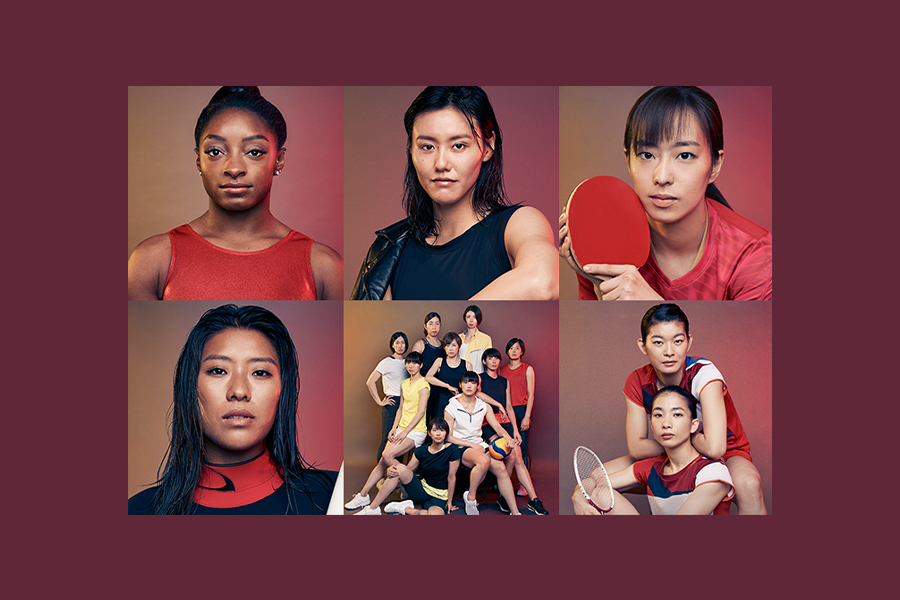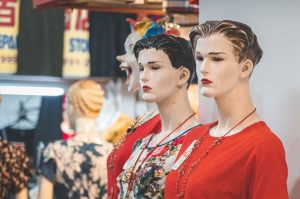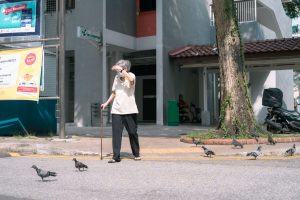Top image: For their #NOCOMPETITION campaign, SK-II has teamed up with Olympic athletes, including gymnast Simone Biles, surfer Mahina Maeda, swimmer Liu Xiang, table tennis player Kasumi Ishikawa, badminton duo Ayaka Takahashi and Misaki Matsutomo, and Hinotori Nippon, the Japanese national volleyball team.
All other images by Zachary Tang.
Most days, this provides a sense of security: the belief that I will never let myself settle for less, because to work hard is to respect myself, and that there is nothing I can’t overcome with smarts and persistence.
Yet as much as we’ve been told that it’s what on the inside that counts, the model woman—however smart or talented she is—must still look, act, or even feel a certain way in order to be successful. In beauty, as with so many other things, society asks impossible and contradictory things of women.
By now, you’ve probably seen SK-II‘s #NOCOMPETITION campaign: Olympic athletes, gazing directly into the camera, declaring that they’re done with having to live up to unrealistic beauty standards.
As Simone Biles, the Olympic gymnast, put it in her declaration to step away from unhealthy beauty standards:
“I don’t have to look very far to see how common this judgment has become … Today, I say I am done competing VS. beauty standards and the toxic culture of trolling when others feel as though their expectations are not met.”
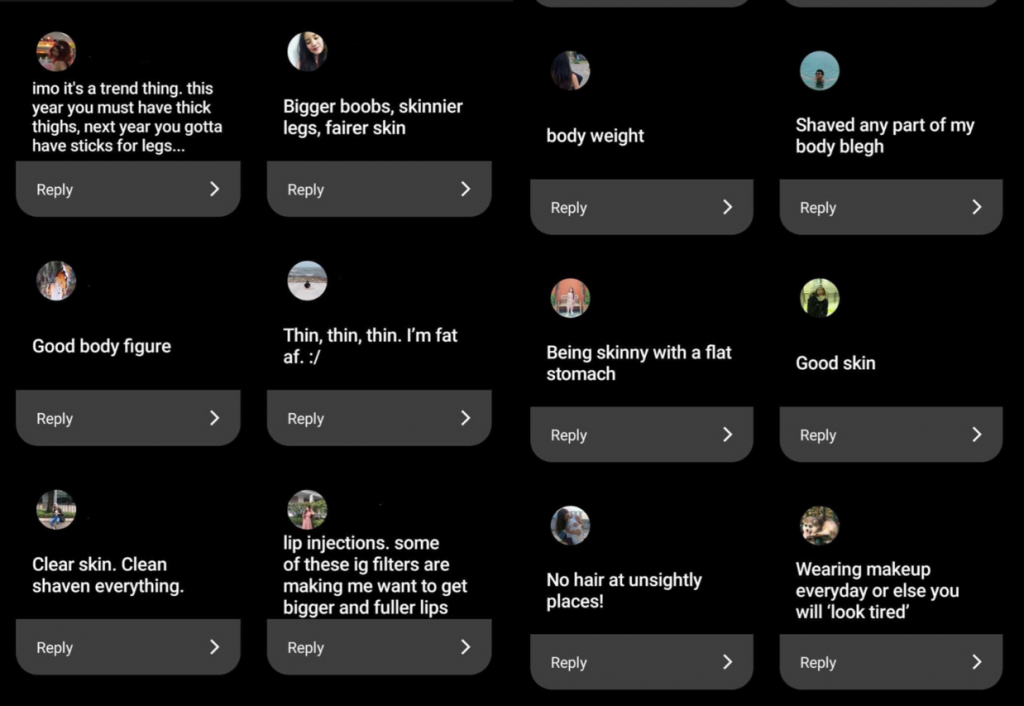
A clear 72% said yes, for overwhelmingly similar reasons: the pressure of relentless comparison, and a fear of not measuring up.
“I don’t want to be the odd one out looking ugly on other people’s Instas.”
“Because I feel I’ve set standards for myself, [and] if I don’t follow them people will see me differently.”
“I sometimes feel inadequate compared to other women if I don’t have make-up on.”
Now imagine adding professional obligations to societal pressures.
Much as it is expected of us, most of us are generally not required to put our best face forward 24/7. But many women in highly client-facing industries, particularly jobs in service and the media, do not have this luxury.
This ranges from jobs that place a clear premium on employees’ attractiveness, to ones where looking well-groomed and confident lend them credibility—make-up artists, fitness instructors, and dermatologists, for example.
Sharon Wee, a flight attendant and former beauty queen, explains that while her employer is relatively relaxed about stewardesses’ appearance, it’s an open secret that not all airlines are. Beyond the pressure to be always pleasant, smiling, and soft-spoken, stewardesses are expected to maintain a trim figure and glowy skin in spite of their gruelling travel schedules.
“Friends of mine who work with other carriers have been ‘grounded’ for having skin issues or gaining weight,” she tells me.
Once, she was rejected for a job with a leading airline. At her interview, she was told outright that her complexion was not good enough and her teeth needed work.
“I used to have scars on my nose, you can still kinda see the bumps, but it used to be worse last time. Which was what they told me: you have scars, go for laser [surgery] and try and get rid of it before you come back. And getting rejected did make me think, is it because I’m not pretty enough?”
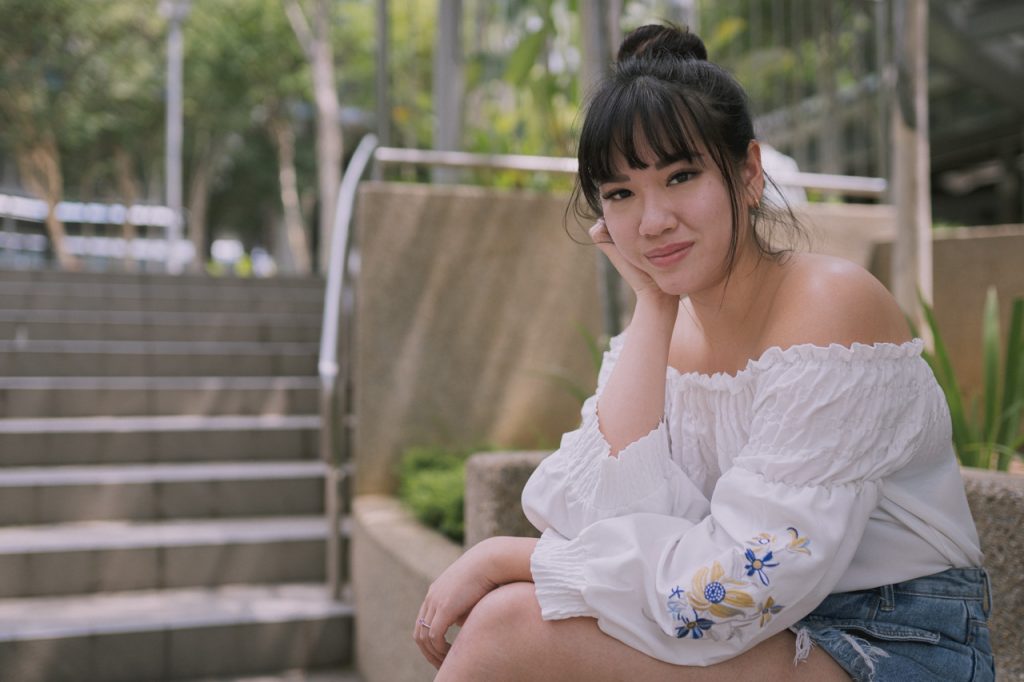
Michelle Sng, a professional athlete who has represented Singapore internationally, tells me that her sport caused her to struggle with her size throughout her adolescence, and even till today.
In her field, high jump, a long, lean physique is not only desirable, but can make a difference— however small—to her performance, creating constant pressure to keep her weight down.
“If I lose one kilo,” she remarks, only half joking, “will I be able to jump 2cm higher?”
It bears mentioning that Michelle is, in all frankness, the very definition of tall and lean. Although she is taller than I am, our builds are similar, and her legs are so long they basically come up to my shoulders.
But, as she admits, “I have a very poor understanding of how I actually look.”
“It’s been with me my entire life. You just learn to live with it. Because athletes … we are perfectionists. You don’t even need anyone to tell you these things; you set these standards for yourself.”
“It’s not like you look at another girl and think, oh, I hate her. But it makes you look at yourself and ask, why am I not that?”
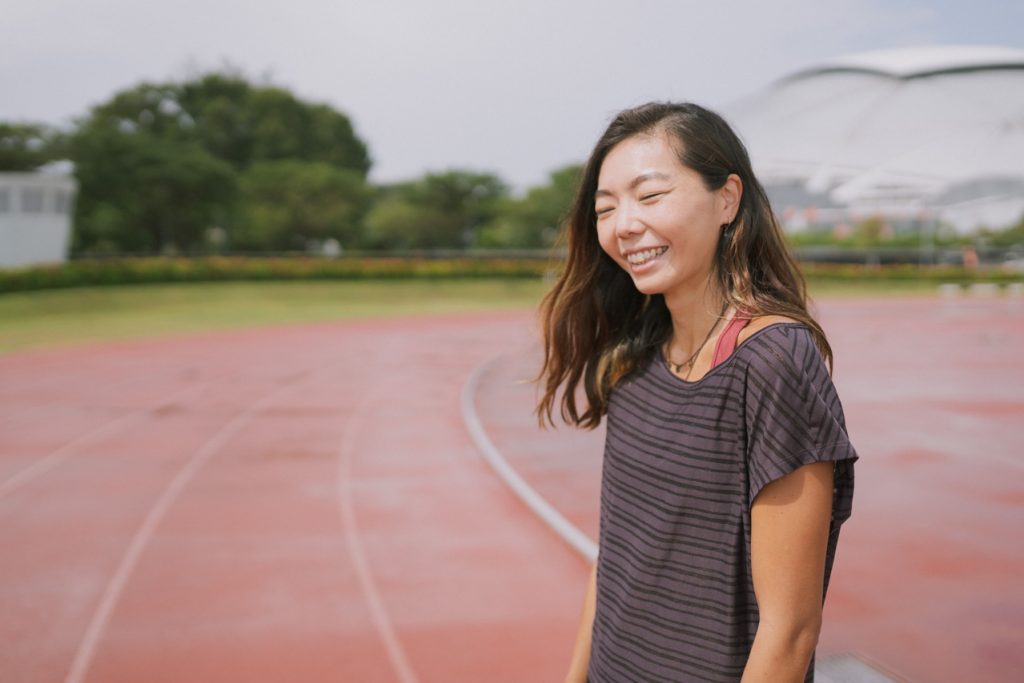
And after a certain point, no amount of excuses can airbrush the truth: that the problem doesn’t lie with women, but with beauty standards themselves.
“This industry has had a fear of embracing different body types and shapes,” Anita Kapoor, the host, presenter, and advocate, tells me.
We are talking about the pressures of working in media, and whether this has made it harder for her to work around beauty standards, which have traditionally favoured a very specific kind of woman: slim, clear-skinned, large-eyed, and fair.
“Quite often it’s a stylist, or a make-up artist, who might have something quite rude to say because they think it’s their job to tell you. [As an Indian woman], I’ve had a lot of terrible make-up jobs because they didn’t have the right colour in their arsenal, or they didn’t know how to handle my hair.”
“And it’s these types of careless comments which are really insidious, and prey on people’s self-esteem,” she continues. “I’ve heard so many people in this industry talk about themselves in a derogatory way because someone told them on a shoot that their arms looked big.”
“The thing is, if they can’t get a good photo, it’s not because it’s your body’s fault. It’s because their photographer couldn’t work out a flattering angle for you.”
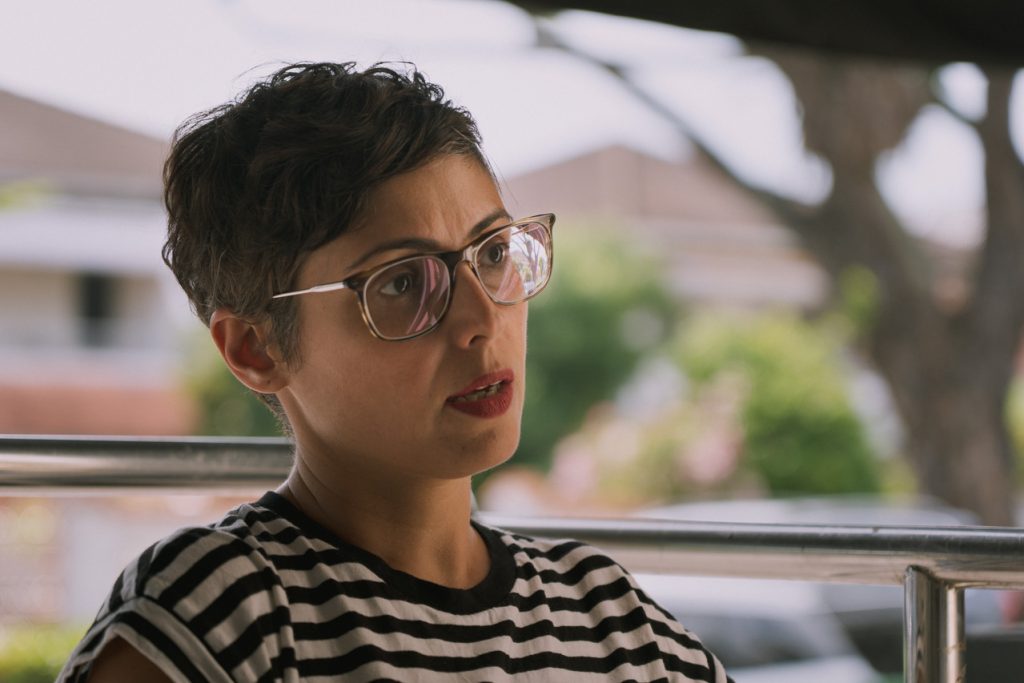
Rejecting toxic beauty standards, therefore, is not as one-dimensional as quitting your 10-step skincare routine in protest. What we are less comfortable admitting is that we don’t have a clear idea of how to reject beauty standards without disavowing beauty altogether.
We aren’t always able to distinguish what is healthy from what is unrealistic, a line made even murkier by how distorted our notions of ‘good enough’ have become. The ideal woman is now at once confident but modest, thin but thicc, luminous but with bad skin days, and aspirational without being unrelatable.
As a result, it is now phenomenally difficult—perhaps more than it has ever been—to tell how many of our choices are grounded in true self-esteem, from how many are driven by the same old fear of falling short.
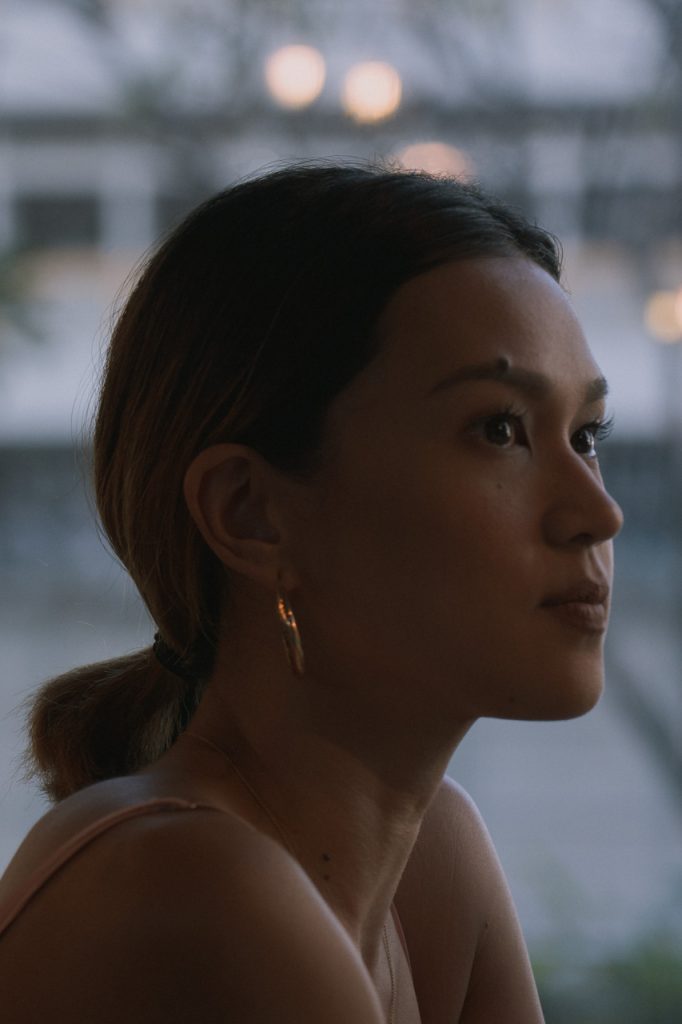
For Aarika Lee, marketing director, musician, and mum, it was having her daughter, Zola Mae, which prompted her to rethink her approach to beauty.
“I think this is the case for many women who have daughters,” she tells me.
“You begin thinking about how you would like them to see themselves, and you start to hold yourself accountable to those standards. If you really want them to love themselves for who they are, you can’t tell them that and not exercise this yourself.”
She tells me about an incident when Zola, then 2 or 3 years old, was watching her get ready to go out, and asked to put on some make-up.
“I told her that she didn’t have to put any make-up on and she asked why. So I said, because you are beautiful already. And she said, but YOU are beautiful! And I went … oh.”
Michelle tells me how a break from athletics gave her the space to figure out who she was, without the pressure of staying in shape to compete. After being forced to take time out due to an injury, she spent a few years travelling, picking up yoga—which she describes as an “extremely humbling practice”—along the way.
“I would look at the photos I’d taken on my travels, and I looked fine. I had put on weight, and my cheeks were chubbier, but my clothes still fit. I was still the same size,” she said.
It didn’t last forever; her old insecurities flared up when she returned to competing a few years later, an experience she found more stressful than she’d hoped.
“But I do my best to try and keep the perspective I gained. The pressure is always there, but I’m a little more self-aware now, and I try to be better at managing it.”
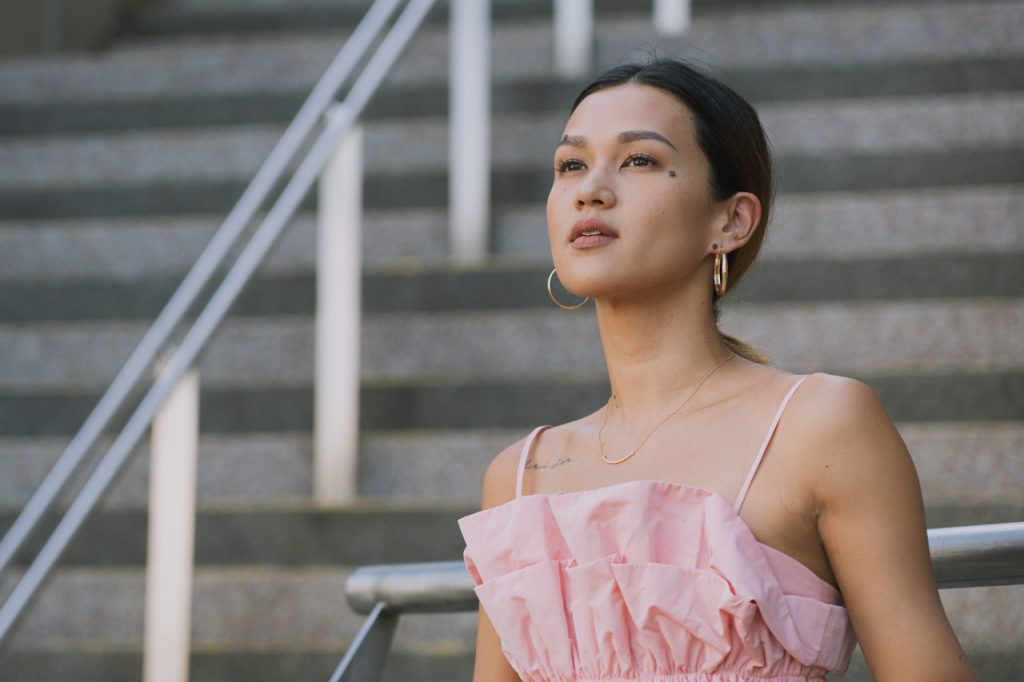
“As you get older, you really do care less about how you look. Like, these are the cards I’ve been dealt, I’m just gonna deal with it,” laughs Aarika.
If this seems counterintuitive, it’s because it’s the complete opposite of the fear-mongering that beauty standards have traditionally built around ageing. Under this narrative, youth is tied to belonging, while getting older—developing dark spots, wrinkles, and fine lines—is a one-way ticket to exclusion.
But rather than being liberated from the pressure of always being looked at, Aarika and Anita tell me that we should celebrate the stronger sense of self that comes with age, keep older women in the spotlight, and reclaim what ageing means.
Both are candid that they have good and bad days on this front. Aarika tells me that when she goes to the mall without make-up on, she’s been asked if she’s tired or ill.
“But this is my face! And I feel simultaneously annoyed, and like, oh no, maybe I should have put some make-up on,” she says.
“As you get older, it’s normal that your pores show more, your cheeks sink, your collagen isn’t what it used to be. I guess we all have to try as far as possible to be self-aware, and to do whatever you’re doing for yourself.”
“I think what time does teach you is what fights are worth fighting, whether it’s about your body image or your place in this world,” says Anita. “But we also have to find it in ourselves to be smarter and more emotionally intelligent, and develop the self-awareness … not to project our insecurities onto others.”
“As women, we’re still in the process of fighting for our esteem, but that is going to give way to something better. It’s coming.”
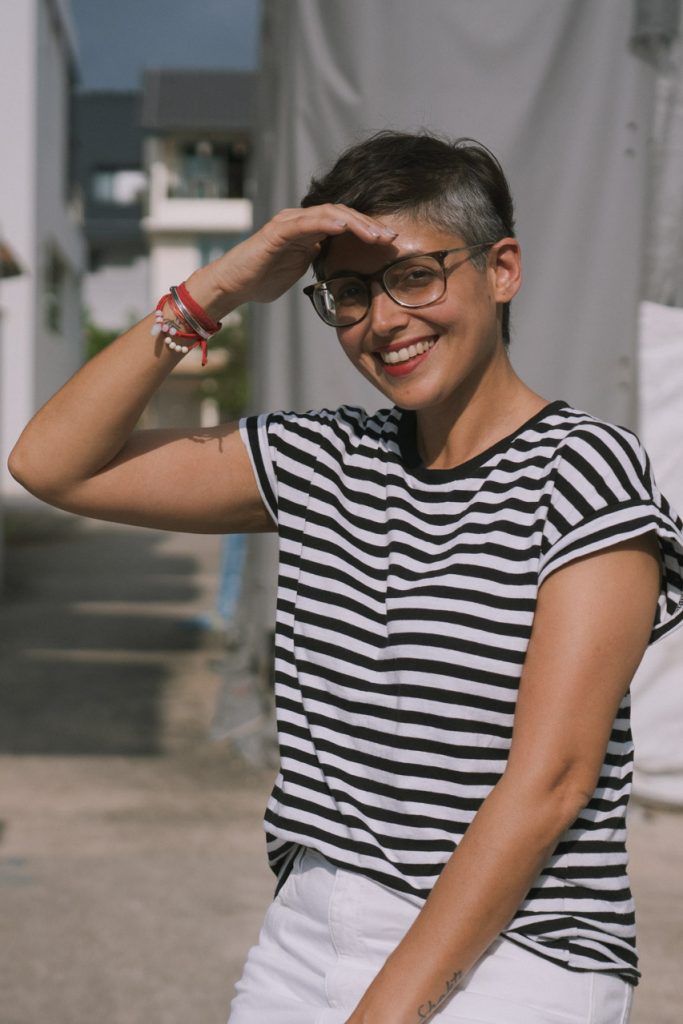
The difficulty of this hits home for me when I realise I’ve been worrying about showing up to interviews with a pimple on my forehead, even as I’m meant to be discussing how damaging beauty standards are.
But if there is false optimism, there is also empty cynicism. While we can’t say for sure what it means to do beauty on our own terms, we do have a clearer idea of what helps us get there: self-awareness, a supportive community, calling out flawed standards when we see them. We need greater representation in our media, be it skin colour, age, or size. And we need to find it in ourselves to voice our opinions, even if we fear seeming difficult or disagreeable.
“I think we have a really long way to go before we can say we’re doing beauty on our own terms, but even the little steps count,” says Aarika.
“That we have so many more make-up shades now, more diverse body types in ads, even people posting barefaced pictures, which you never used to see on social media—it’s so important that we have all these things as anchor points for girls growing up. The more you see different things, the more you realise you don’t have to be this version of a beautiful girl.”
All this starts with a small, but significant decision: declaring that we’re done buying in, and participating in a competition none of us signed up for—something that SK-II, in partnership with Olympic athletes, has taken the lead in.
As Anita put it, “We don’t have to buy in to what’s being shoved down our throats. Social media and advertising, even when it’s body- or emotion-positive, will only tell a surface story. Perhaps the question is: do we only want to look like other people to feel better, or do we want to feel better in ourselves, and be thoughtful about what we choose to fight for?”
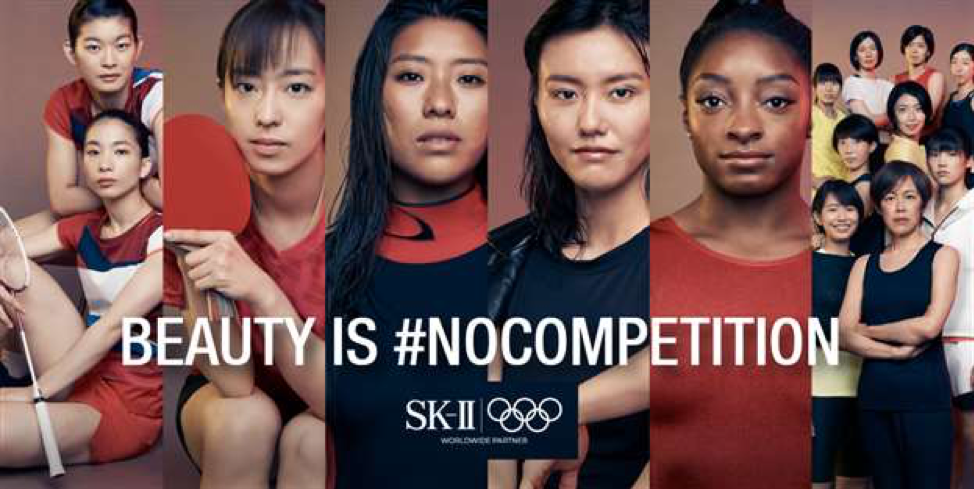
This story was sponsored by SK-II.
